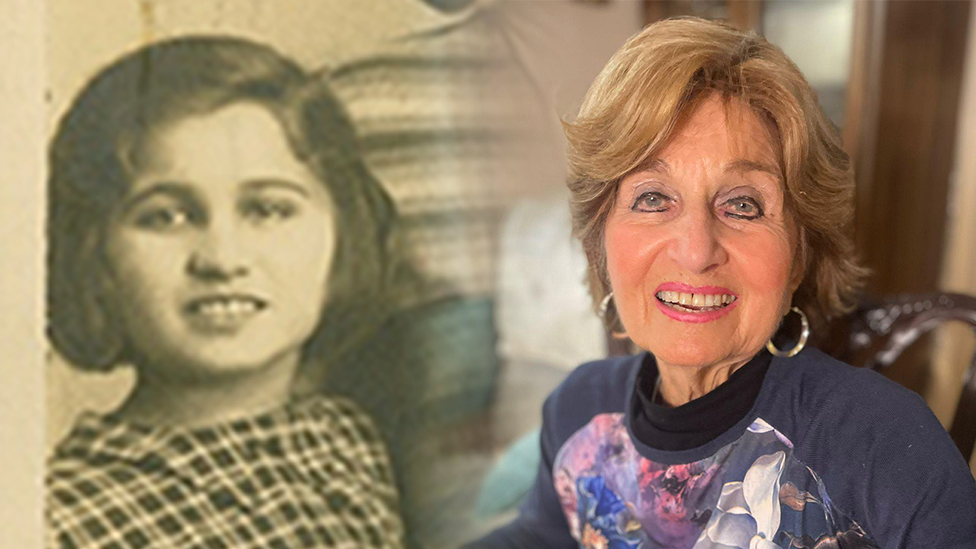BBC reveals web of spammers profiting from AI Holocaust images
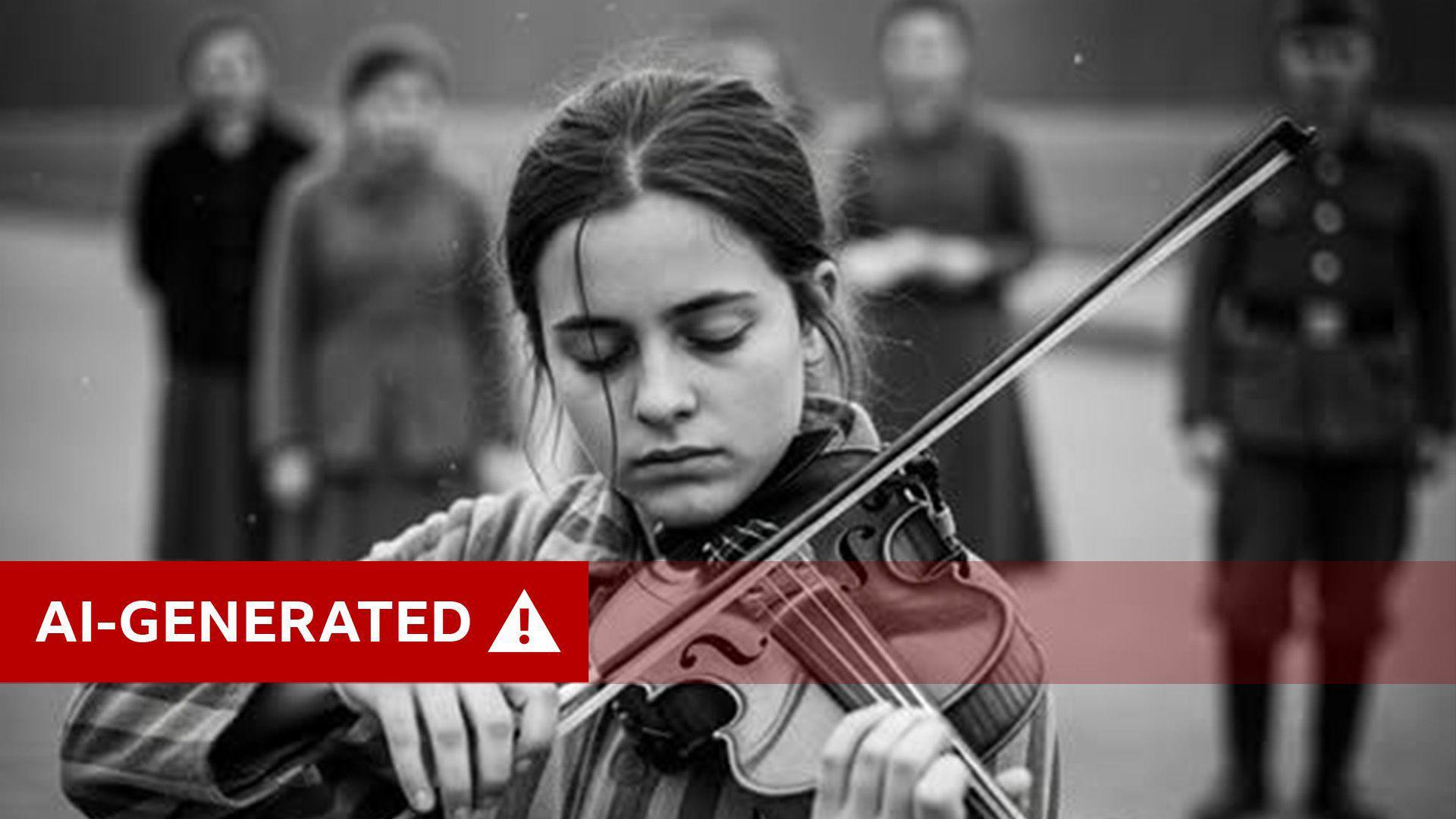
- Published
An international network of spammers are posting AI-generated images of Holocaust victims on Facebook, a BBC investigation into "AI slop" has found.
Organisations dedicated to preserving the memory of the Holocaust say the images are leaving survivors and families distressed.
They have also criticised Facebook's parent company Meta, saying it allows users on its platform to turn the atrocity into an "emotional game".
There are only a handful of genuine photos from inside the Auschwitz concentration camp during World War Two.
But in recent months, AI spammers have posted fake images purporting to be from inside the camp, such as a prisoner playing a violin or lovers meeting at the boundaries of fences - attracting tens of thousands of likes and shares.
"Here we have somebody making up the stories… for some kind of strange emotional game that is happening on social media," said Pawel Sawicki, a spokesperson for the Auschwitz Memorial in Poland.
"This is not a game. This is a real world, real suffering and real people that we want to and need to commemorate."
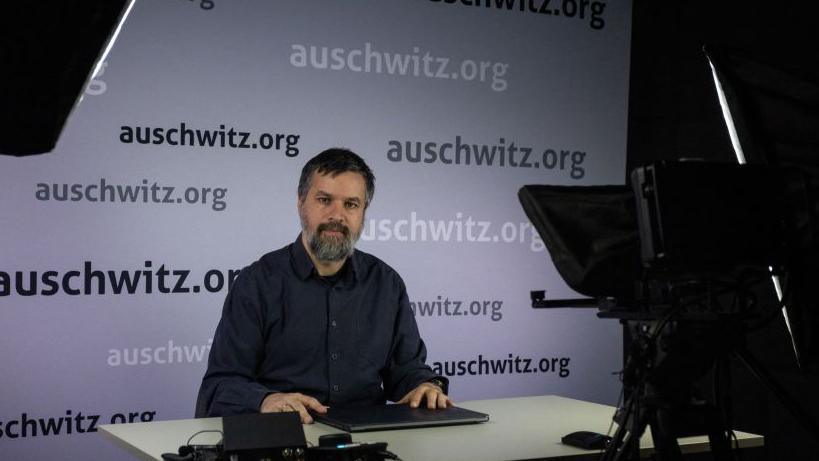
Pawel Sawicki said the Auschwitz Memorial raised its concerns about AI Holocaust images directly with Meta.
The BBC has tracked many of these images to the accounts of a network of Pakistan-based content creators who collaborate closely on how to make money on Facebook. They are gaming Meta's content monetisation (CM) program, an "invite-only" system which pays users for high-performing content and views.
One account named Abdul Mughees, listed as living in Pakistan, posted screenshots claiming to have earned $20,000 through social media monetisation schemes, including Meta's. Another post appears to show the account accrued more than 1.2bn views on content across the span of four months.
We have not been able to independently verify any creator's earnings.
Among the many Facebook posts from Abdul Mughees' account are several AI generated photos of fictional Holocaust victims and fake stories that included a child hiding under floorboards or a baby being left on train tracks outside a concentration camp.
The BBC's analysis of the online activities of the account and dozens of others like it suggests they are posting almost exclusively "AI slop".
The term refers to low quality AI-generated images and text, usually produced in large volumes and spammed across social media.
Auschwitz has become a popular topic for history-themed pages and groups. Some with names such as "Timeless Tales" and "History Haven" were posting more than 50 times a day.
In June, the Auschwitz Museum warned accounts like these were stealing its posts, processing them through AI models and often warping historical details or fabricating narratives and victims entirely. In a Facebook post, the Museum said these images were a "dangerous distortion" which "disrespects victims and harasses their memory".
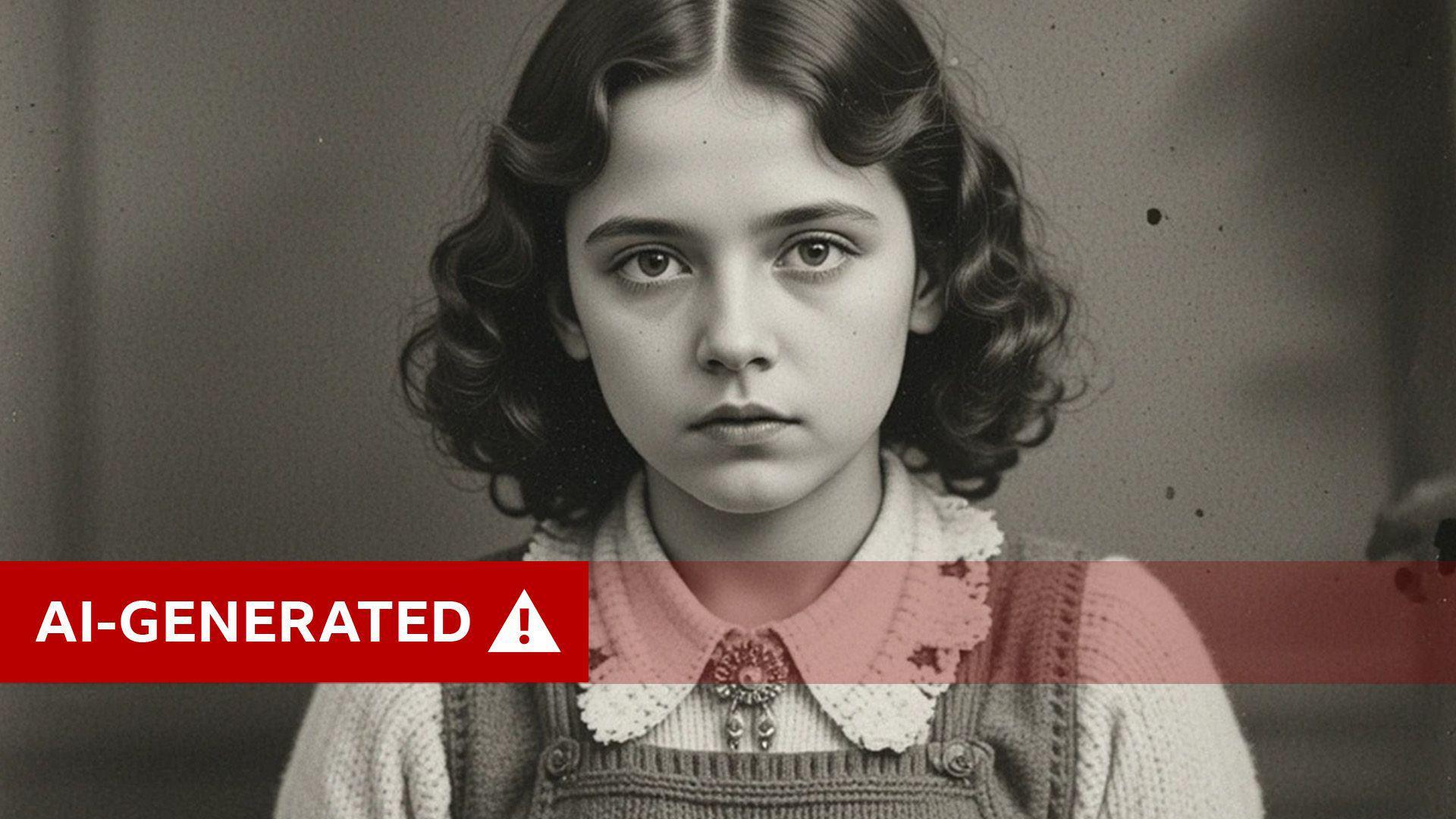
This AI-generated photo of a supposed Holocaust victim was posted on Facebook along with a fabricated story
Mr Sawicki said the tsunami of fake images was undermining the Auschwitz Memorial's mission to raise awareness of the Holocaust.
"We already started getting comments on our Facebook posts that 'oh, this is an AI-generated photograph'," he said.
Survivors and families are also disturbed by the surge of Holocaust AI slop, according to an organisation promoting Holocaust education and research.
"They don't quite understand what they're seeing," said Dr Robert Williams, from the International Holocaust Remembrance Alliance.
He said Holocaust survivors were feeling a "certain sense of sadness this has been allowed to happen" despite government and philanthropic investments into awareness campaigns.
"They feel like their efforts haven't been enough," he said.
"That's a very sad thing to consider because the last of the survivors will soon leave us."
Meta does not intentionally encourage users to post false stories, including about the Holocaust, but its system rewards posts with high engagement. The BBC has also found AI slop accounts based in India, Vietnam, Thailand, and Nigeria.

To understand why these networks are mass producing specific types of content, the BBC spoke with a Pakistani man Fazal Rahman, who is enrolled in several social media content monetisation schemes and says this work has become his sole source of income.
While he says he does not create any Holocaust images himself, and did not know what the word meant when initially asked, he operates in the same Facebook groups as those who do.
Mr Rahman said a Facebook page with 300,000 followers could earn its owner $1,000 USD a month if it had "premium content" catered to higher-value audiences from the UK, US, and Europe. He estimates Western views were worth eight times more per post than those from Asia.
He said history as a topic was a reliable driver of online traffic.
Other creators appear to agree. The BBC has seen step-by-step instructional videos on how popular AI models could be used to generate continuous fake history images and text.
In one video, the creator asked the AI chatbot to list key historical events they could use as a basis for content creation and was given the Holocaust as one of its answers.
Other advice given by some creators include tips on how to deceive audiences, by having their page impersonate other entities to build audiences and become eligible for Meta's CM program.
Facebook has a page transparency feature, which allows users to track the previous names of pages. Using this, the BBC found many pages that had posted Holocaust AI slop that once posed as a range of different entities including official firefighting departments in the US, commercial businesses, and American influencers - all without their consent.
These pages, according to creators' public posts, can also be sold or rented to those looking to break into the content creator market.
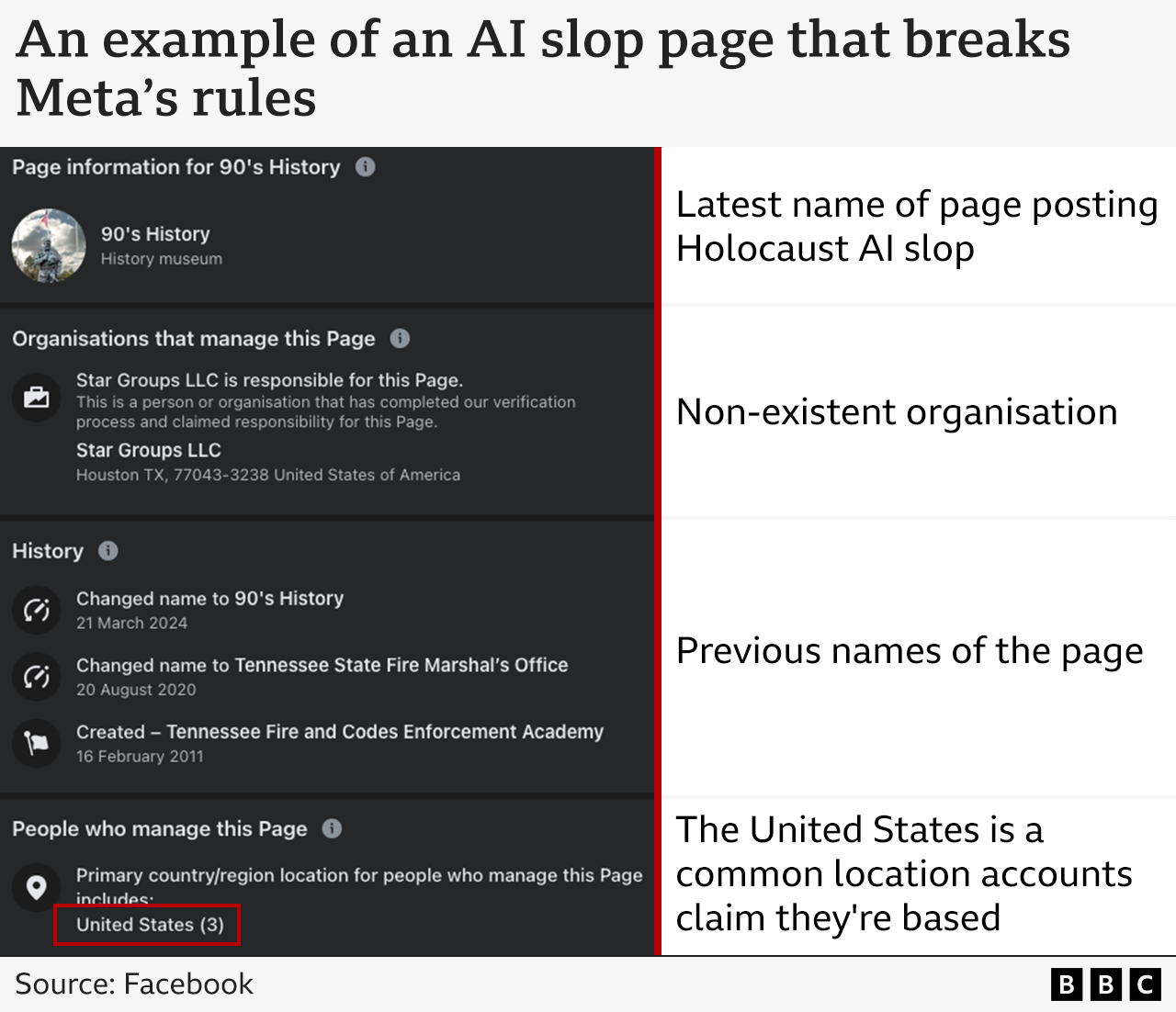
The BBC asked Meta about several profiles that had posted Holocaust-themed AI content and also appeared to have engaged in deceptive practices.
Several of the profiles and groups were removed, including ones originally flagged by the Auschwitz Memorial in June.
A spokesperson for the tech giant said while those fake images did not violate its content policies, it investigated them and found they broke its rules around impersonation or trading of pages.
"We removed the Pages and Groups shared with us and disabled the accounts behind them for violating our policies on spam and inauthentic behaviour," they said.
AI has been used in the past to commemorate the Holocaust and bring real victims' stories to life, but the International Holocaust Remembrance Alliance's Dr Williams warns there's a risk this can contribute to a sense that Holocaust history is somehow fabricated.
"Any form of extreme manipulation is something that we should shy away from," he said.
Additional reporting by Umer Draz Nangiana, BBC Urdu
The Facebook grifters making money off AI Holocaust victims
BBC Trending investigates the content creators in Pakistan profiting from AI generated Holocaust victims on Facebook
Listen now on BBC Sounds
- Published12 November 2022
